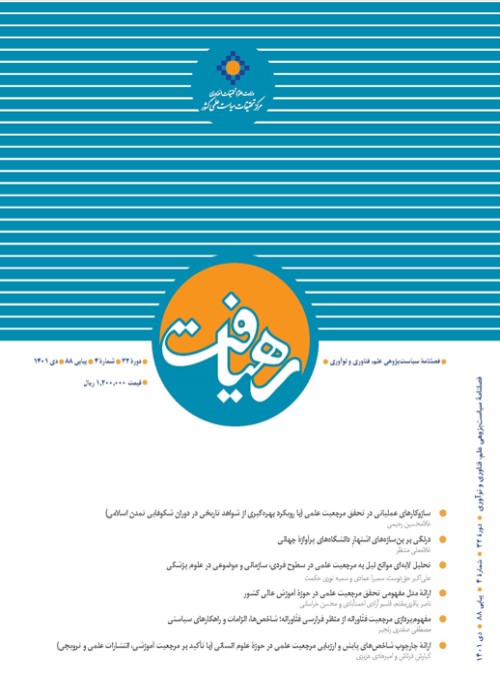Identifying the components and indicators of human resource empowerment through virtual education based on knowledge management
Human resource training is one of the important goals in organizations, this is important due to the new approaches of education, such as virtual education, which provides the basis for increasing productivity in organizational training. On the one hand, knowledge management is considered as a new structure in organizational training models, hence the purpose of the current research is to examine the components of virtual education based on knowledge management. The current research was conducted with a qualitative approach and thematic analysis method. The statistical population includes all professors, teachers and managers of Mashhad city, who were selected through a purposeful criterion-based sampling. The data was collected through semi-structured interviews with 12 professors, 9 teachers and education workers, and 5 school principals in the holy city of Mashhad. In order to analyze the data, basic, organizing and comprehensive thematic method was used. Lincoln and Cuban criteria were used to ensure validity and reliability. They listed four criteria "credibility, transferability, reliability and verifiability" in order to evaluate the scientific accuracy of qualitative research. In terms of reliability, the participant control method was used. The results of the research show five overarching themes, including knowledge-based components (including such axes as application of knowledge, use of current knowledge, attention to digital literacy, application of knowledge, use of current knowledge and attention to digital literacy), managerial components. (attention to regulations, organizational commitment, attention to professional development, professional expertise of employees, research-oriented management and appropriate infrastructure), communicative and interactive components (including axes such as attention to learner interaction, extensive networking in In the direction of synergy, development of access to people and information and dissemination and exchange of knowledge), strategic components (attention to constructivism in education, attention to individual differences and potentials, attention to educational ethics, effective feedback and evaluation, and integration of education and research ) and structural components (accessibility, virtual education system, supporting educational platforms and using appropriate hardware). According to the findings of the research, it can be concluded that in the field of virtual education based on knowledge management, attention should be paid to the fields of knowledge in the organization, organizational management approach, communication indicators and organizational interactions, organizational education strategies and structure and fields. Education plays an important role. This important shows the role of two main dimensions, individual and organizational, in organizational training.
- حق عضویت دریافتی صرف حمایت از نشریات عضو و نگهداری، تکمیل و توسعه مگیران میشود.
- پرداخت حق اشتراک و دانلود مقالات اجازه بازنشر آن در سایر رسانههای چاپی و دیجیتال را به کاربر نمیدهد.



